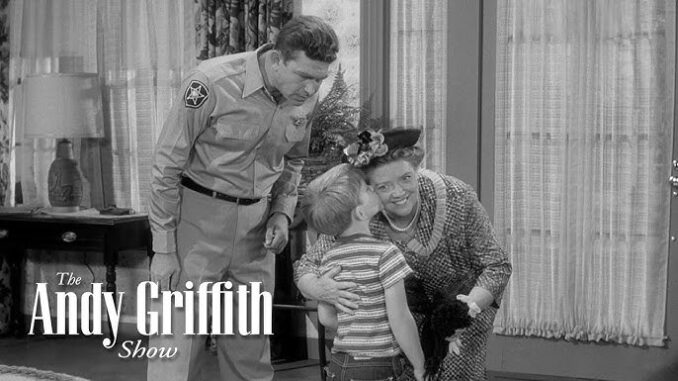
The scent of dust and masculine endeavor clung to the Taylor house like an old overcoat. It wasn't a dirty house, not truly, but it hummed with the quiet hum of a place efficiently managed but not entirely lived in. Meals were functional, often quick, sometimes silent. Shirts were clean but rarely pressed with an artisan’s touch. For Andy, a man accustomed to order in his professional life, the domestic sphere was a constant juggling act – a necessary chore performed with a heavy heart and a singular focus on providing for his son, Opie. And Opie, bless his curious, spirited soul, drifted through the rooms like a small, well-meaning ghost, well-fed and well-schooled, but perhaps a little untethered, a boat without a steady anchor. This was the Taylor home before Aunt Bee.
Her arrival was not a grand pronouncement, but a quiet, almost imperceptible shift in the very atmosphere. She stepped off the bus, a sturdy woman with sensible shoes, a floral hatbox, and a gaze that seemed to take in the world with gentle scrutiny. The first evening, the aroma of a real, slow-cooked pot roast began to unfurl from the kitchen, chasing away the faint echo of previous nights’ hurried suppers. It was more than just food; it was a warm, savory hug that settled deep in the stomach and the soul. Soon, the crisp, clean scent of lemon polish replaced the musty tang of forgotten corners. A vase of fresh-cut zinnias appeared on the dining table, a splash of unexpected joy. Aunt Bee wasn't just tidying; she was re-infusing the house with life, making it breathe again.
For Opie, Aunt Bee was nothing short of a revelation. Before her, the concept of a mended sock felt abstract, a parental directive rather than an act of care. Now, his socks appeared darned, his shirts crisply ironed, and his bruised knee was met not just with a bandage, but with a soothing rub and a story. She taught him to shell peas, to fold laundry, to appreciate the patience inherent in kneading dough. Her stories at bedtime were not rushed summaries, but lingering tales spun with a grandmotherly lilt, often accompanied by the gentle clinking of knitting needles. Opie’s laughter, once sporadic and thin, now bubbled up with a newfound resonance, grounded by the steady, comforting presence that Aunt Bee provided. He was no longer a boat adrift but one moored safely in a familiar, sun-drenched harbor.
Andy, too, felt the profound weight lift from his shoulders. The constant mental inventory of groceries, laundry, and household chores, once a dull ache in his periphery, slowly faded. He could arrive home not to another set of tasks, but to the inviting glow of a lamp and the quiet hum of contentment emanating from the kitchen. Dinners transformed from a necessity into a ritual – a shared experience where conversation flowed easily, punctuated by Aunt Bee’s gentle interjections and Opie’s eager recountings of his day. He found himself more relaxed, more present, able to dedicate his full attention to his son, his work, and even to the simple pleasure of an evening on the porch. Aunt Bee hadn't just cleaned his house; she had cleared his mind, allowing him to reclaim a piece of himself that had been consumed by the daily grind.
Aunt Bee’s arrival was far more than a practical convenience; it was a profound spiritual reordering for the Taylors. She brought not just order, but warmth; not just food, but nourishment for the soul; not just clean clothes, but a tangible expression of love and care. The Taylors’ house, once merely a shelter, became a home in its truest sense – a vibrant, loving ecosystem where laughter echoed, stories unfolded, and the quiet hum of contentment replaced the sterile quiet. It was a new beginning forged in the simple, yet transformative, power of a nurturing presence, proving that sometimes, the most profound changes arrive not with a bang, but with the quiet, reassuring scent of a fresh-baked apple pie.